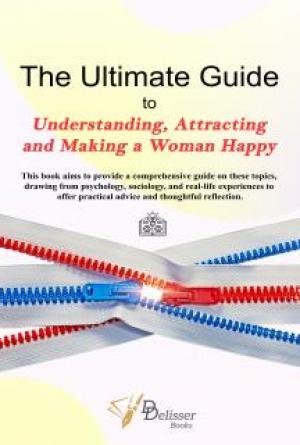Chapter 10
QUESTIONS TO HELP YOU STOP
AND THINK
"Be patient towards all that which is unsolved in your heart, and try to love the questions themselves."
- Rainer Maria Rilke
I want to leave you with some questions to think about.
Questioning is very important in your education. Questioning makes your mind sharp and intelligent. It's a form of exercise; just as physical exercise keeps your body in shape, questioning keeps your mind in shape. When you stop, think and question, you are more likely to be who you are and less likely to react in harmful, conditioned ways.
Here are some questions that can help you think over and discuss what you have just read in this book.
1. Do you believe that "might is right"?
2. If so, who taught you this?
3. What influence does the media have on you as far as bullying is concerned?
119
4. Who are your heroes?
5. Are they really heroes, or could they be villains in disguise?
6. Do you believe in harsh punishment for children who disobey?
7. If you do, why?
8. Do you think young people bully because they feel hurt?
9. Do you think bullies act that way for the fun of it?
10. If you think so, why?
120
11. Do you believe that "boys will be boys" and that it's okay to be tough and push people around?
12. Do you feel the pressure to conform?
13. Do you feel the pressure to compete?
14. Do you feel the pressure to be an "A" student?
15. To be a super athlete?
16. To get into the best college?
17. Do you think trying to be "perfect" (good) is harmful -
a form of bullying oneself?
121
18. What "types" of bullies can you think of?
19. What are the effects of bullying individually?
20. What are the effects of bullying globally?
21. Do you think that a victim can cause bullying in some ways?
22. Are only boys bullies?
23. What are the differences between male and female bullies?
24. What makes you want to fight: For the fun of it?
Being
called a coward? To save face? Standing up for yourself?
A special cause? Your country?
122
25. Do you think bullying creates "the enemy"? How?
26. Do you believe fighting solves problems?
27. Can violence bring about peace?
28. What can you do to create more peace: In your home? In your school? In your community? In the world?
29. Do you see yourself as a "peacemaker"? If not, why not?
30. Do you really care about changing?
31. Do you really care about helping others to change?
123

32. Are you willing to get help if you need it?
33. Isn't it really up to you?
A SPECIAL NOTE TO THE YOUNG READER
I hope that you have enjoyed my book and have learned what you can do about being a bully or a victim. The most important thing to remember is that we don't need to bully. We do so because we are hurt and afraid. Each of us feels alone, separated from each other in our own world, our own life. It is important to see that we are not alone, that we are all human beings who need to cooperate for our mutual survival. Many people feel that they must fight for their own survival because they feel isolated. So being a bully is a part of self-preservation; bullies think they need to compete, to be aggressive and push to get what they want. This way of living creates pain and suffering. And in the extreme, war.
What we need is so simple. What we need is to care for each other. And in order to care, it helps to understand what makes a bully so you can be free of being one yourself or of being a victim of a bully. If we can understand why people bully, then there can be real peace in the world because we will have understood one of the major causes of war. Understanding is intelligence, and being intelligent is caring, loving.
If you want to share your thoughts or feelings about anything in this book, please feel free to write to me. I enjoy hearing from people who have read my books. It makes me feel cared about, which is such a wonderful feeling.
_3½LQ_
Terrence Webster-Doy le
A Personal Message to Adults Who Live
or Work with Young People
My father used to say, "Boys will be boys." I don't think he meant anything negative by it - just that, in his eyes, boys fighting and being rough was just the way it was. Boys were allowed, and even expected, to be somewhat aggressive and combative. This was, and still is to some extent, the accepted, conditioned view. But as a boy I suffered a great deal from this attitude because I was not particularly aggressive -
that
is, "manly." I did not like fighting with my male friends or being aggressive with girls, as many of the other boys were. I felt pressure to be aggressive and to dominate, yet I couldn't live up to this expectation. So I got picked on, bullied. And it hurt, both physically and emotionally.
I still feel hurt, late into my adult life. And I know it has its roots in my childhood. I grew up just outside of New York City in a somewhat tough town. Back in the 1940s and 1950s there were gangs, really tough and violent groups of young men who fought each other. If you weren't in a gang, you were considered a "punk." Coming from a more educated family, I presented myself to others in an "ungang-like" fashion, which also added to my getting picked on. White buck shoes (Do you remember Pat Boone's popular shoes of that era?) were in fashion, but only among the few preppy-looking kids whose parents insisted that they wear them.
My white shoes lasted one day. They were stepped on, scuffed, kicked and trampled in a matter of hours. I realized that in order to survive, I had to
"do as the Romans do!" So I joined a gang. I gave up my father's image of a young Madison Avenue junior executive wearing natty Ivy League clothing, and donned a nylon kelly green jacket, dark green pegged pants with saddle stitching, and engineer boots with a fake brass buckle. My gang was called the "Crusaders." Our jacket had a buccaneer-like character on the back, sword in hand, making a bold, threatening gesture to those who dared to look.
My gang days were short-lived. Not only did I shock my family by the seriousness of the situation (which it was), but the cartoon "Crusader Rabbit" suddenly became popular, which made our gang look ridiculous!
126
My sister saved me by convincing my parents to move to the next town, a rather conservative, very preppy (now called ''Yuppie") town. There I could redon my white buck shoes, madras shirts, and fit right in with everyone else.
But there was a serious side to all of this that has lasted with me.
There was a great deal of fear and anguish in being picked on for being different, for not being aggressive, or "manly" enough. I remember, and still feel deeply, the fear and humiliation I felt when I was bullied. Two bullies in particular were relentless in their attacks on me. I used to try to sneak home from school to avoid them, which just made it worse because they saw that I was afraid. I felt so helpless and desperate. I couldn't talk to my father because I felt that I would not be a "man" in his eyes if I showed weakness by not standing up to these bullies. So I finally joined them and became their lackey, their victim and whipping boy. It was only by moving away from them that I could stop this humiliating relationship, but unfortunately it carried over. Other young men sensed and took advantage of this "weakness." But their bullying was of a different nature and was "acceptable," encouraged and honored by society.
In this town, being aggressive wasn't the same as in the "tough"
town. It wasn't gross or uncouth, like it was with the gangs. That was low class, crude. This type of bullying was an educated, refined type that would eventually allow you entrance to prestigious East Coast universities and later to prestigious New York law firms, or brokerage houses. This was a type of aggression that wasexpected of a "winner," to be a "success," and was held in high regard. This was the upper class version of the conditioned mentality that "boys will be boys." The traditional three-piece suit replaced the gang outfit, the yachting or country club insignia replaced the crusading buccaneer on the imitation silk jacket. This type of bullying governed the minds, hearts, and souls of the elite young men who desired to be Number One, to join the ranks of the rich and powerful, the ruling class. So I went, as the saying goes, from the frying pan into the fire. I changed my costume again and proceeded to take my position in the pecking order, on a more insidious totem pole.
The pressures were tremendous and pervasive.
127
In my former town, at least the adults around us disapproved of our aggression and gang behavior. They wanted us to act like gentlemen. But in this new situation, teachers, parents, school administrators, counselors
- indeed, it seemed, the whole town - approved of this form of
"gentlemen's" aggression. "Boys will be boys" meant that a young man had license to be aggressive, superior, even violent. It was a part of the
"old boy's network." You would be allowed to join the club if you went along with the tradition. But, again, I couldn't give in -
not entirely.
I became a preppy rebel. At times, I wore the costume of the rich, East Coast spoiled kid. At other times, I was decked out in my James Dean "rebel without a cause" outfit - red poplin jacket, collar defiantly turned up, worn blue jeans, and the infamous engineer boots with the fake brass buckle. I would vacillate between going to fancy formal dances in a tuxedo, to slouching around town with a Marlboro cigarette dangling in a cool fashion from my sneering, rebellious mouth - looking as if I was one of the wild ones, which I was in some tragicomic sense. I was only fourteen years old and had no real understanding of what I was doing. I was a Doctor Jekyll and Mister Hyde character, wavering between total conformity and absolute rebellion. On the one hand, I desperately wanted to be accepted as "one of the elite," and on the other hand, I wanted nothing to do with them because I could never live up to their expectations. And neither could they, nor can anyone.
The tremendous pressure, the struggle between conformity and rebellion took its toll on me. I was a drunk, a failure, and felt sick most of my teenage years -both physically and mentally. I was torn apart by my conflictive roles. My teachers subtly or overtly pressured me to "get good grades" to "be acceptable," or "go to the right college," to "get the right job." And even in church - where I thought there would be some compassion, some sense of decency and kindness and love - I subtly and overtly got the message "be good!" which translated into "conform!" It seemed that church and state were not separate, but were together in their combined effort to condition young people to be "successful."
It was this "success" that I found to be the most insidious bully! It was this "success" that I so rebelled against! And it is the pressure for
"success" that creates such tremendous conflict in the world -
128
individually and socially! Although it has a comic side, it is very tragic.
This "boys will be boys," aggressive, success syndrome has caused great suffering for many individuals over many years. It is even a direct cause of war, that extreme outcome of militarized aggression to be Number One, the elite, the best. The schoolyard bully and the national military or political despot are similar in their orientation. And conversely, the schoolyard victim can become cannon fodder for generals in their relentless need to conquer and control. Or, the victim turns bully in revenge. And today it is no longer, "boys will be boys," because girls have joined the ranks. Many girls are no longer satisfied with growing up to raise the warriors; they too want to join in the battle. They have learned from men how to be cold, cunning and aggressive. The femininity and compassion of women are qualities that are rapidly fading and being replaced with a macho mentality, a "go for it" yuppie ambitious tenacity.
My story is not so unusual. The effects of bullying touch us all. Most human beings have suffered from being picked on and many have grown into adulthood with a chip on their shoulder, taking their frustrations out on the less strong, the less aggressive, those beneath them in the pecking order. As adults, we need to take bullying very seriously. Bullying can have disastrous consequences!
•
According to an international study published by the National Safety Council, entitled School Bullying and Victimization (NSSC Resource Paper), "...15 percent of school children are involved in bully-victim problems. One in 10 students is regularly harassed or attacked by bullies.... Those who had been childhood bullies tended to have children who were bullies.' These men were also found to be abusive with their wives, punish their children severely and have more convictions for violent crimes...." Bullying is considered a major problem in Japan and in Scandinavian countries where violence, vandalism and general delinquency are increasing. This violence is one reason why the Japanese Prime Minister has called for major educational reforms.
In Japan, cases of suicide have resulted from being bullied, as well as situations where victims have murdered their tormentors. In Tokyo, a special "bully buster" force of 30 officers arrested more than 900
youngsters for bullying in a 6 month period. And this is just the tip of the 129
iceberg. Bullying is an international problem that has prompted experts from around the world, in the fields of education, sociology, psychology, criminal justice, and juvenile delinquency prevention, to meet and discuss the problem and possible solutions. Findings show that young people are pressured to passively conform and, at the same time, to aggressively succeed, which creates tremendous stress on them and their families. In essence, bullying is a learned way of life that reflects our socially accepted, often violent, self-centered way of living.
Why do we teach our children to be bullies, to be "successful" in this way? What do we gain by this? Can we see the devastating effects of this unnecessary, aggressive way oflife? Individually and globally? It seems that schools generally teach our children to compete, and our conventional religious institutions aggressively pressure them to be "good," and to display acceptable behavior.
Acceptable behavior in this society is a double-edged sword. On the one hand, we are told to be successful, compete, gain, "go for it!" While on the other hand, we are expected to be kind, considerate, good. This double bind pressure divides us and creates conflict, inwardly and outwardly.
And should you really succeed, as in business, then the same people who encouraged you to be successful now want to tear you down, to make you fail. Everyone loves the underdog. But let the underdog succeed and the other edge of the sword cuts deeply. It's as if we are in a perpetual struggle: "Succeed, but don't be a success." "Compete, but be considerate of others." "Be aggressive, but be kind."
I am not trying to be negative, vindictive or cynical. I want to point out actual behavior so we can come into direct contact with it, to understand it as it is. It seems to me that we have not been able to deal directly with this behavior because we have been judged by others and, in turn, judge ourselves. Judgment, and the effort to conform to idealistic,
"moral" behavior, trying to be what we are not, creates great conflict.
Judgment creates pain and prevents us from looking at the fact of our behavior. We start outby judging others, bullying them to meet our needs, and then end up bullying ourselves in order to keep up with our self-projected ideas.
130

What the essence of this book is saying is that we are all subjected to, and are engaging in, one form of bullying or another. We all have been raised in an incredibly violent "dog eat dog," cutthroat world. Even the way we approach solving these problems can become another form of bullying and, hence, produces more conflict. The only "solution" (which is really not a solution as in "problem solving") is to: 1) come into direct nonjudgmental contact with the fact of what we actually are, and 2) begin to be aware of the deeper causes of this reactive way of living. If we can observe the tendency of bullying in ourselves as it is happening and question its place in our lives, then our deeply conditioned tendency can end in that moment of clarity and questioning. It is the nature of a question to hold the conditioned impulse in a state of abeyance. The tendency may come back a moment later, because of the tenacity of conditioning, but if one is alert, sensitive, questioning and challenging conditioning, then the tendency can end - each time one is aware of it as it happens. •
Being aware of this deep conditioning to bully, to manipulate, to be self-centeredly aggressive, can only come about in society if enough of us become seriously concerned about understanding this issue. Teachers and parents together need to assist each other in understanding this tendency in themselves, and help their children to be aware of conditioning as it occurs. Bullying is not a moral issue, nor is it an intellectual problem to be solved. If we can begin to create programs directed at understanding this issue of bullying, then we will help raise a generation of young people who will have the possibility of being free of its devastating effects. And as we begin to explore bullying, we will come to realize the deeper, underlying causes of many of the problems of humankind - the social strife and sorrow created by humans divided in themselves and separated from each other in a nonsensical, violent pursuit for self-survival.
Survival in the 21st Century means survival for all, a global cooperation that must go beyond defensive, fearful, individual, self-centered, aggressive tendencies.
•
. .
----
-
?
,
l'-
'
•









